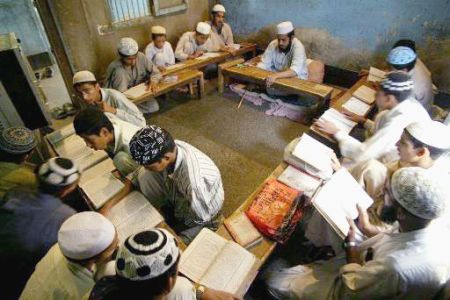
With the proliferation of global terrorism, unleashed largely by Islamic extremist groups like the Al Quaeda, secular political and social leaders often point their fingers at the Madrasas, the Islamic learning institutions as the cradle of Islamic extremism. In India, while the activities in some of the Madrasas are not above suspicion but to brand the Madrasa system of education as a whole as the hotbed of Islamic terrorism is oversimplification of the entire process of creation of Islamic terrorists.
The majority of Islamic terrorists tutored in the Islamic thoughts of extremism are not students of the Madrasas. In order to dissociate themselves from terrorist activities, the Darul Uloom Deoband, the revered seat of Islamic religious education in India had organized a conference of about 6000 Madrasa representatives of India at Deoband to discuss issues of modernizing the Madrasa system of education by incorporating secular subjects like modern science and computer application. However, perhaps the greatest success of the recently concluded Deoband conference was to bring the different Islamic groups – the Shias, Sunnis, Sufis and Ahle Hadis, to the consensus that Islamic terrorism is going against popular Muslim interests. Terrorism in the name of Islam was denounced as anti-Islamic. The Madrasa scholars and teachers were urged not be influenced by anti-Islamic and anti-national forces and not to defend such forces by any means.
The Indian constitution ensured special privileges for the autonomy of the Madrasas. The foundation of Madrasa education stands on Koran and Sunna or the tradition of Prophet Mohammad. The deeply religious mindset of a large section of Indian Muslims prevented them from acquiring mainstream secular education. In due course after the independence of India, an overwhelming section of the Indian Muslims found themselves deprived of the expanding economic and social activities in the country. Instead of blaming their traditional education system, they found it apt to blame the administration for their apathy towards them. However, contrary to the popular beliefs, for the rural Indians Madrasas are the only available educational institution in the remote districts of India where Muslim students along with a few Hindu pupils receive education. Revamping the Madrasa education system and more transparency in the funding of these institutions might help Muslim students in these institutions.
Source: PakTribune




